Mangaluru: The National Institute of Personnel Management (NIPM), Mangaluru Chapter, successfully hosted the Vice-Chancellors Conclave 2025 at Hotel Ocean Pearl, Mangaluru, bringing together academic leaders, industry experts, and key stakeholders to discuss the future of education and skill development. The event commenced at 6:30 PM on 16th February 2025 and was centered on the theme "Transforming India @2047 into a Global Hub of Knowledge Education."
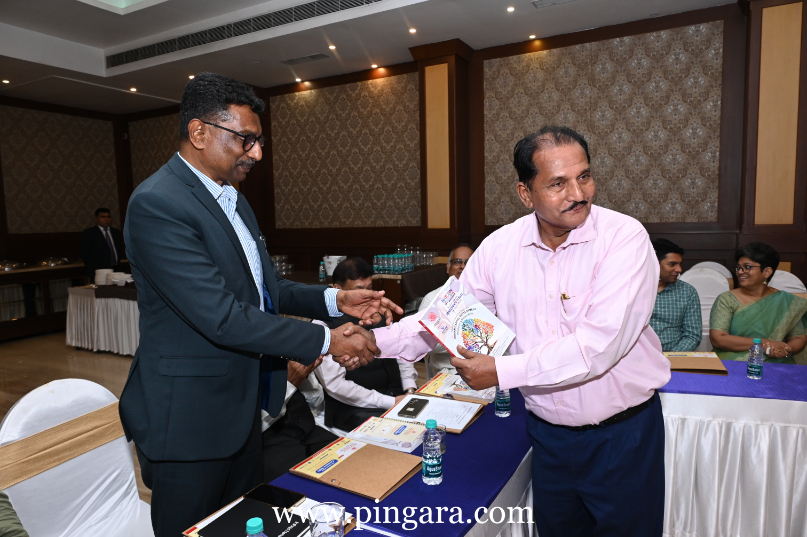
This conclave marked a significant milestone in shaping the future of education and industry collaboration. An esteemed panel of Vice-Chancellors participated in the discussions, including:
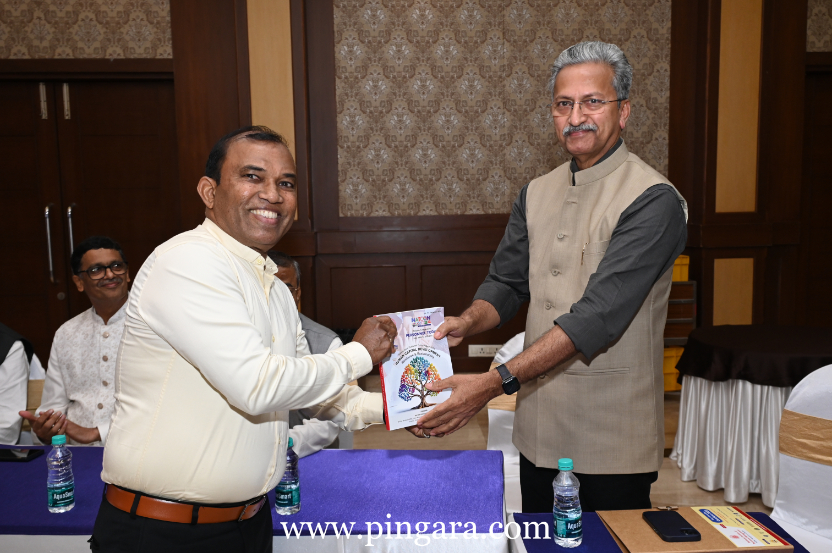
Prof. B. Ravi, Director, NITK, Surathkal, Prof. P.L. Dharma, Vice-Chancellor, Mangalore University, Dr. M.S. Moodithaya, Vice-Chancellor, NITTE (Deemed to be University), Dr. M. Vijayakumar, Vice-Chancellor, Yenepoya (Deemed to be University), Lt. Gen. (Dr.) M.D. Venkatesh, Vice-Chancellor, MAHE Manipal, represented by Dr. Dilip Naik, Pro Vice-Chancellor,
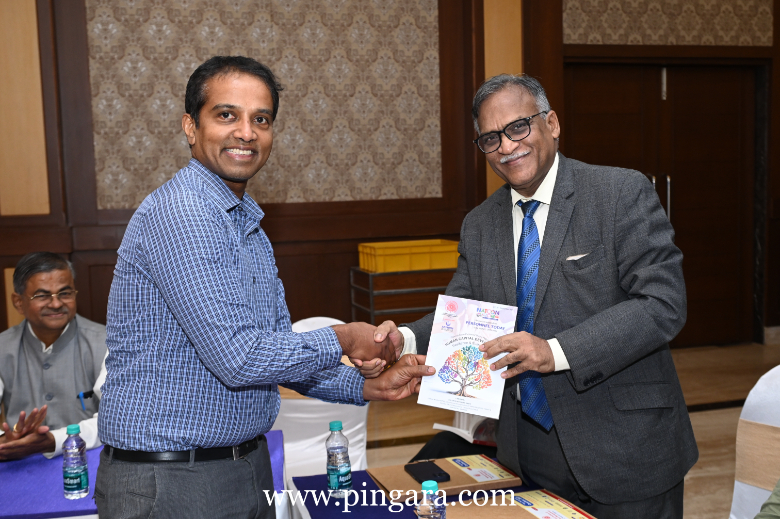
Rev. Dr. Praveen Martis SJ, Vice-Chancellor, St Aloysius (Deemed to be University), represented by Rev. Dr. Melwyn D’Cunha SJ, Pro Vice-Chancellor, Dr. S. Vidyashankar, Vice-Chancellor, VTU Belagavi, who extended his greetings and best wishes.
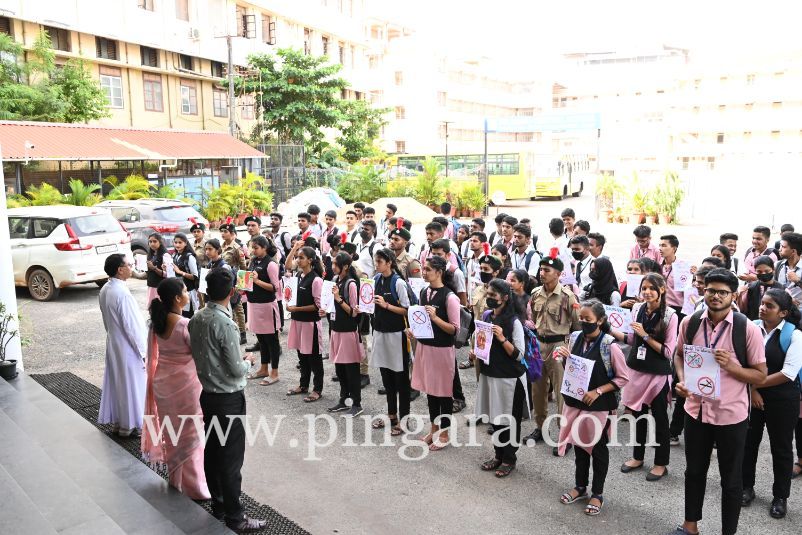
The event began with an introduction to NIPM Mangaluru and its activities by Dr. Asha Albuquerque Pai, faculty at Prasanna School of Public Health, Manipal and a executive committee member of NIPM, Mangaluru.

Sandeep SP, Head of HR at Pratt Whitney, delivered an impactful keynote address on the importance of Industry-Academia Connect. He commended NIPM for organizing the first-ever Vice-Chancellors Conclave in the coastal region and praised the efforts of the Mangaluru Chapter under the leadership of Steevan Pinto Sandeep emphasized that collaboration between industry and educational institutions is vital for transforming these institutions into talent hubs.
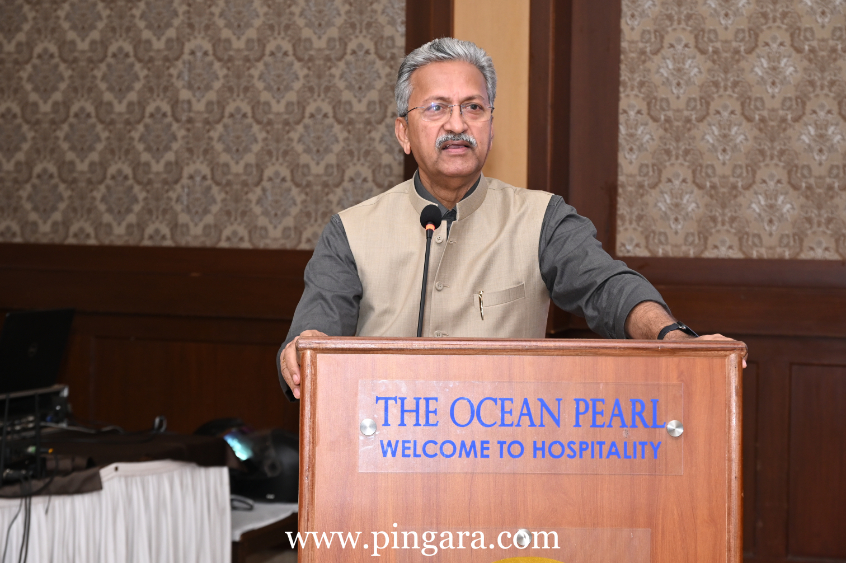
Drawing insights from successful global business models, he highlighted how companies like Toyota, Suzuki, and Nissan have thrived through co-creation rather than competition, leading to industry-wide progress. He introduced the Japanese concept of "Kintsugi," which embraces imperfections as a pathway to resilience and growth, underscoring that excellence does not require flawlessness.
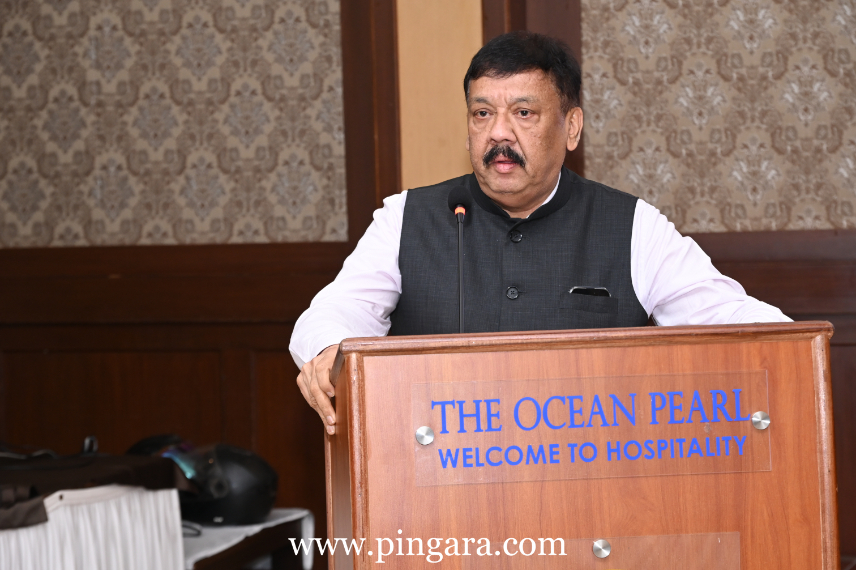
Sandeep inspired attendees to think beyond boundaries, advocating for innovations, collaborations, and a purposeful approach to education. He concluded by stressing the need for universities to focus on competency-based education, social responsibility, and research-driven innovation to cultivate a skilled and responsible workforce.

Dr. Amitabh Anand, a professor at Excelia Business School in France, brought a global perspective to the discussion by sharing insights from his institution in Hungary. He emphasized the importance of fostering a responsible mindset among students, ensuring that they are not only industry-ready but also equipped with a sustainability-oriented outlook. He highlighted the significance of tracking carbon footprints, incorporating sustainable initiatives into institutional policies, and aligning curricula with evolving global needs. His examples, including the development of a carpooling app to reduce emissions, demonstrated how academia can drive impactful change.
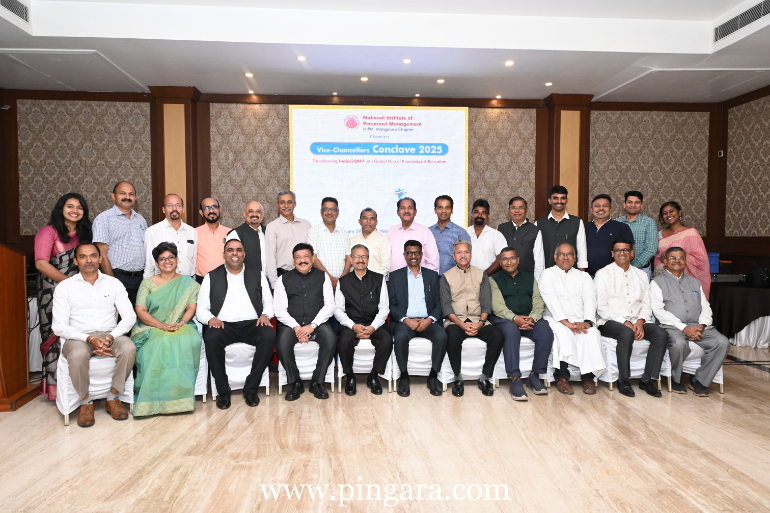
The open floor session facilitated meaningful exchanges between Vice-Chancellors, academicians, HR heads, consultants, and researchers. Discussions revolved around the importance of case-based learning to enhance critical thinking, integrating skill-based education into curricula, and the need for industry-backed internships and training programs within campuses. The speakers underscored the necessity for educational institutions to collaborate rather than compete, fostering an ecosystem that nurtures talent across all tiers, not just premium institutions. Furthermore, there was a call for the industry to actively support smaller institutions in bridging skill gaps.
Dignitaries emphasized that academic institutions have a social responsibility beyond education, encompassing research, innovation, and societal development. Suggestions ranged from creating localized industry-academia partnerships to equipping students with a holistic understanding of workplace dynamics, including the importance of family and work-life balance. The conclave reinforced the view that institutions should function as talent incubators, ensuring that India’s higher education system contributes meaningfully to its global aspirations. A key focus was placed on developing Mangaluru into a global city by fostering innovation, collaboration, and infrastructure to attract global talent and investment. In the days to come, more collaborative efforts between academia and industry can drive transformative change, ensuring that India’s educational institutions evolve into global centers of excellence and innovation.
In conclusion Krishna Hegde M., Group General Manager – HR at MRP Lexpressed that the Vice-Chancellors Conclave 2025 served as a vital platform for insightful discussions and collaborations aimed at bridging the gap between academia and industry, ultimately contributing to the vision of transforming India into a global hub of knowledge and education by 2047.
Steevan Pinto, Chairman of NIPM Mangaluru Chapter delivered the welcome address and highlighted the purpose of the conclave. Laxmish Rai, Secretary of NIPM Mangaluru Chapter proposed the vote of thanks. The program was skillfully compered by Alphonsa Paul and Shravya Naik, HR students from the School of Social Work, Roshni Nilaya, Mangaluru. Past Chairpersons of NIPM Mangaluru Dr. Devaraj K, PA Jose, Shekhar Pujari, P Suresh and Dr. Sebastin K Vwere present during the occasion.
